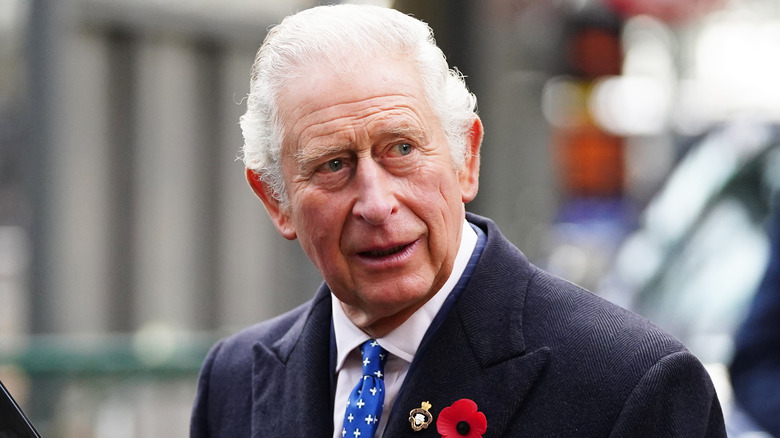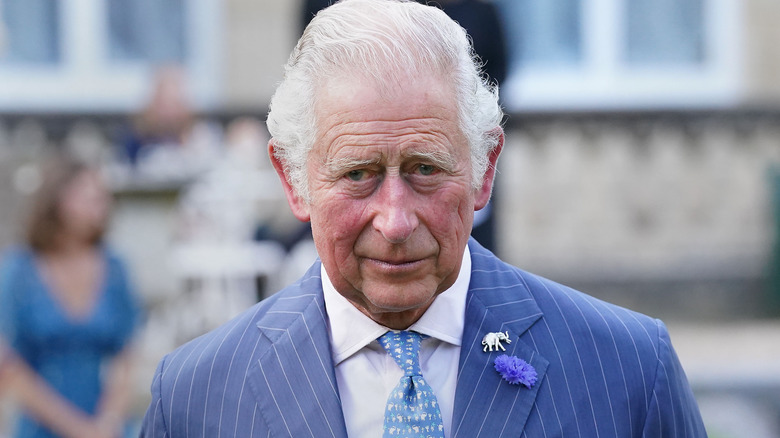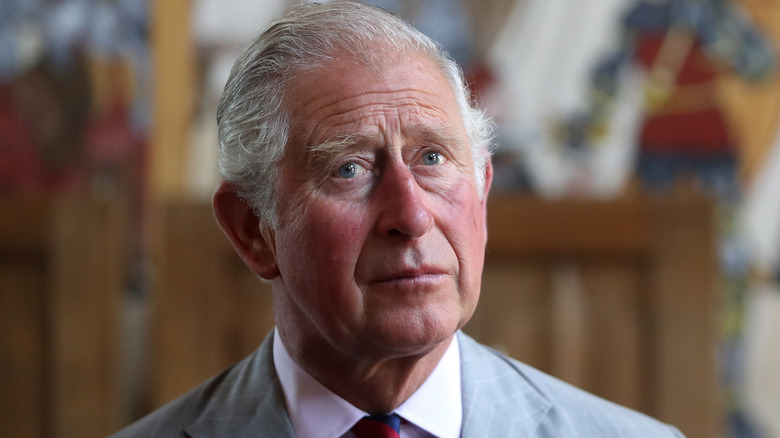Oncologist Tells Us Likely Reason King Charles' Cancer Is Getting Treated Quickly
In early February, Buckingham Palace announced that King Charles had been diagnosed with cancer. However, details surrounding the king's cancer, including type and prognosis, were not made available. What the public does know is that the monarch's cancer was detected after he was treated for an enlarged prostate — but he does not have prostate cancer. We also know that Charles began treatment straight away. In its statement, the palace said that Charles "remains wholly positive about his treatment and looks forward to returning to full public duty as soon as possible."
Nicki Swift caught up with hematologist and medical oncologist Chadi Nabhan M.D., MBA, host of the podcast "Healthcare Unfiltered" and author of the Johns Hopkins University Press books "Toxic Exposure" and the forthcoming "The Cancer Journey," to get some insight on what might be going on with the king. "The first possibility is that while he was undergoing the prostate procedure, he underwent other types of tests, and these tests detected some form of cancer elsewhere in the body," Dr. Nabhan explained, cautioning that the "possibilities are endless" when it comes to what is ailing the 75-year-old Charles.
Dr. Nabhan suggests that bladder or kidney cancer may have been detected, as doctors may have focused on the genitourinary system, but admitted that it's hard to say what type of cancer Charles has for certain, since cancer can occur "in any organ of the body."
We also asked Dr. Nabhan his opinion on how quickly Charles began treatment — and whether that suggests something more serious.
King Charles is already undergoing treatment
Once doctors confirmed that King Charles had cancer, he began treatments straight away. While some people may automatically think that things are more serious because of the expedited treatment plan, Dr. Chadi Nabhan suggests that it could simply be because he's the king. "Without knowing the type of cancer that he had, and whether that cancer is localized to one organ, or it has spread to multiple locations, knowing the exact therapy that he needs or is having is not possible, because every cancer is treated differently," Dr. Nabhan told Nicki Swift exclusively.
Shortly after the world learned of the monarch's diagnosis, Prince Harry flew from Los Angeles to England to visit him, despite their famously strained relationship. This act alone had many people thinking that Charles' condition wasn't good and that he may be more ill than the palace was letting on. However, according to People, Harry popped in to spend some time with his father before jumping on a plane and heading back to California. The short trip seems to imply that Charles isn't in any sort of grave health crisis.
The royal family has a history of cancer
The royal family is notoriously private and rarely shares extensive details about their personal lives, especially when it comes to one's health. However, we do know that King George VI (King Charles' grandfather) died of lung cancer. Since Queen Elizabeth's death in September 2022, there has been at least one report that she had been diagnosed with bone marrow cancer. So, could Charles' recent cancer diagnosis be due to his genetics? Moreover, do those genetics tell us anything about what type of cancer he may be dealing with? Not exactly.
"I don't think that his diagnosis of cancer at his age is a reflection of a genetic problem in the family," Dr. Chadi Nabhan said. "Cancer is a disease of older individuals and it is not uncommon for people at his age to be diagnosed with a cancerous condition. The fact that there have been other members of his extended family with cancer is not sufficient to presume that this is a genetic condition. I don't see anything alarming in that regard."



